Meet Joshua Wong, a 19-year-old activist who is trying to change China
- Published
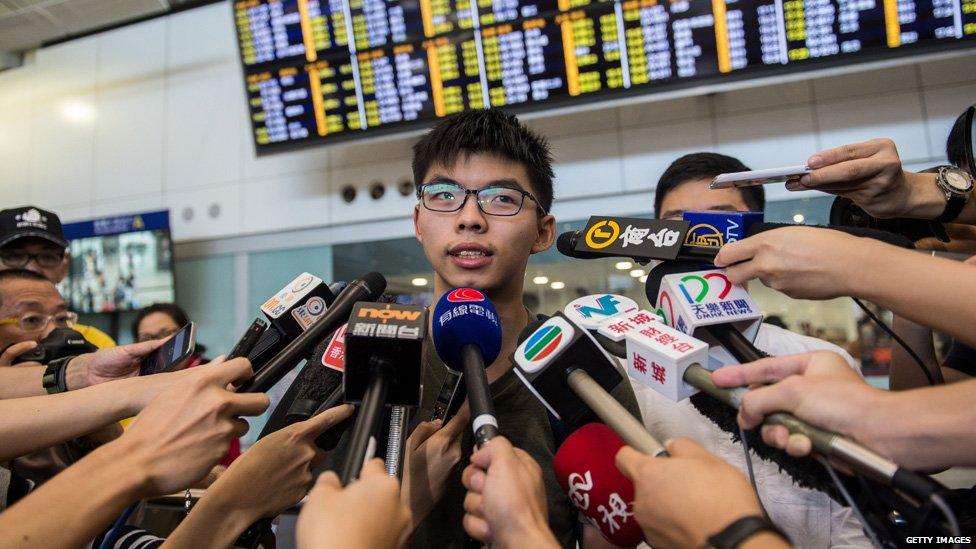
Hong Kong pro-democracy activist Joshua Wong has been barred from entering Thailand, where he'd been planning to speak to students.
The 19-year-old became the face of the Hong Kong street protests in 2014.
He was detained on arrival at Suvarnabhumi airport on Wednesday.
A student group has alleged that the move was made by Thailand at the request of China but the Thai government has denied giving any order for Mr Wong's detention.
The military leaders, in power since a 2014 coup, said immigration officials had made the decision to bar him, although no reason for doing so has been given.
China's foreign ministry said it had noted the reports and respected Thailand's immigration control.
Joshua Wong has since returned to Hong Kong and spoken to the Chinese press. , external
But who is Joshua Wong and why is he of such concern to governments in both China and Thailand?
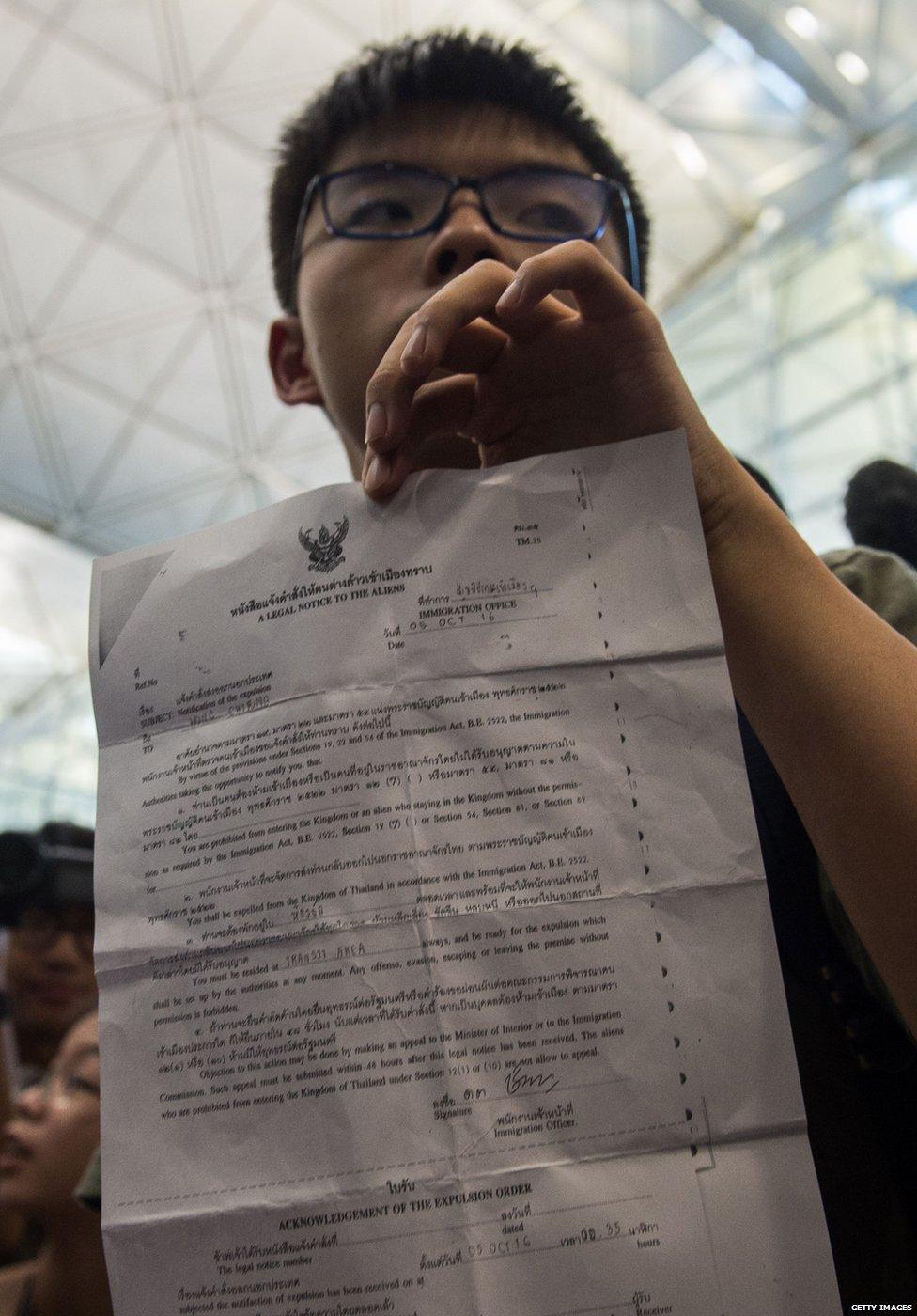
Joshua Wong holds up his expulsion notice from Thai authorities
Who is Joshua?
Joshua Wong is a student activist from Hong Kong who came to international attention in 2014 when he led a boycott of classes to protest against the political system in China.
He has since staged more protests in China and has been branded an extremist by the Chinese press.
Internationally, he was listed as one of Time Magazine's most influential teens in 2014 and by Fortune magazine as one of the world's greatest leaders in 2015.
Aged just 15, he and some friends set up a group called "Scholarism" aimed, he says, at giving students a political voice.
In an interview with a Hong Kong newspaper he explained why.
"Even though students are under-age, non-professional and lack social status, they still have a role to play in intervening government policies."
What happened in Thailand?
Mr Wong had been invited by Thai student activist Netiwit Chotipatpaisal to address students at Chulalongkorn University to mark the 40th anniversary of a massacre of students in 1976.
Mr Netiwit had told the South China Morning Post newspaper ahead of the visit that it could inspire Thai students to speak against the military leadership.
But when he arrived in Bangkok in the early hours of Wednesday, Mr Wong was detained.
"They forced me to stay inside the police station and stay in prison for 12 hours," Mr Wong said at a press conference back in Hong Kong.
"When I asked what's the reason for them to detain me at Bangkok, they just say that, 'We will not give any explanation.'"
What has Joshua protested against?
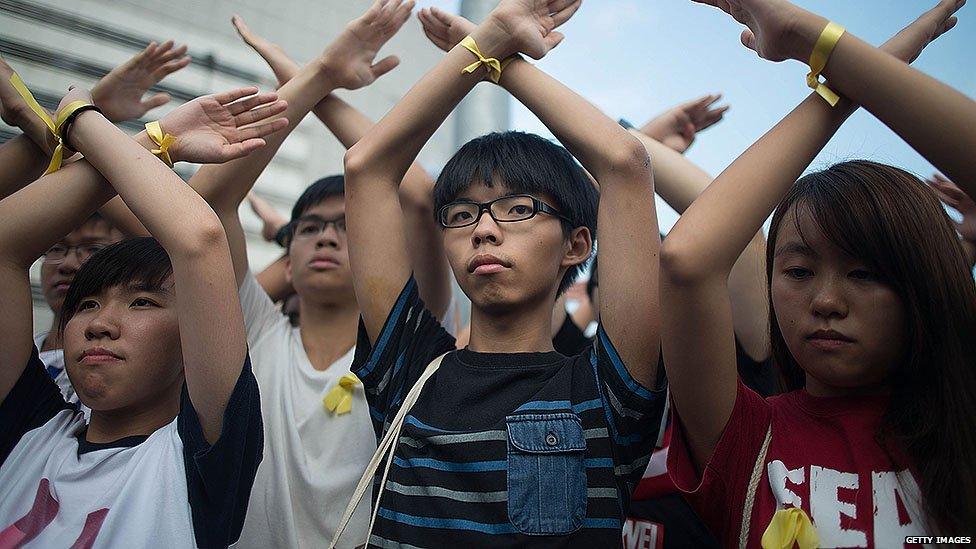
Joshua lives in Hong Kong, an area governed by Britain until 1997, which is now meant to be an autonomous region of China.
But critics say the Chinese government is trying to erode the controls agreed when power was transferred, and many like Joshua are protesting against that.
In 2014 he led protests against a decision that China chooses any candidate standing for election in Hong Kong.
In 2007 China promised Hong Kong residents they would be granted "universal suffrage" - where everybody has the vote.
This happened but there was a catch. Voters in the region can only select from a list of candidates selected by leaders in Beijing.
China said granting direct, open voting would cause a "chaotic society".
Joshua Wong says Hong Kong is only "semi-democratic" and wants other students to "care more" about politics.
He believes students are the perfect people to spread that message because he says they're, by their nature, "idealistic".
His message is clear - he wants a free society where everyone has the chance to nominate and vote for potential candidates to Hong Kong's chief-executive.
He says peaceful protests would be ideal, but says sometimes it's necessary to resort to "civil disobedience".
What impact has Joshua had?
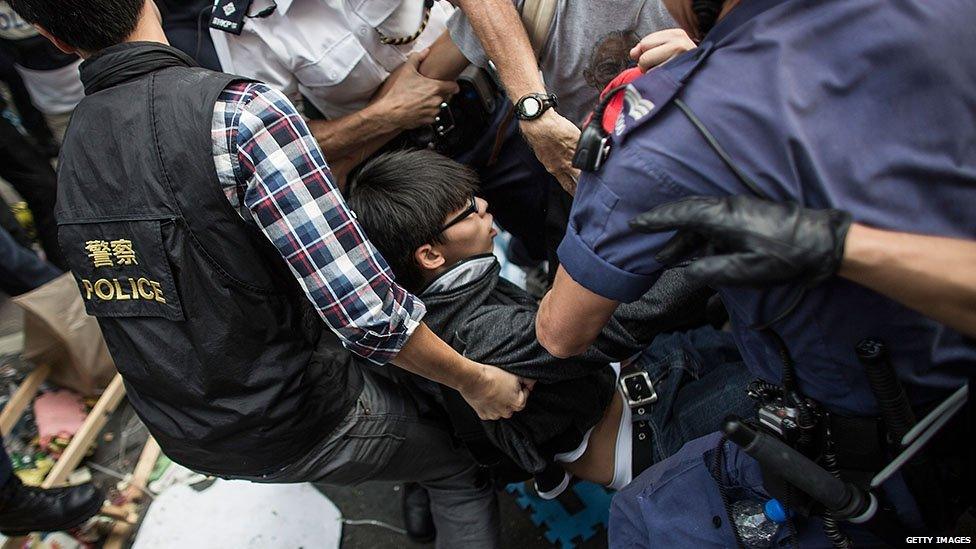
His movement had an immediate impact on Hong Kong politics.
In 2012 the group led a rally of 120,000 students, helping to overturn a pro-China national education programme by occupying the government's headquarters.
Leaders were forced to shelve the plans, designed to teach pupils about the "advanced, selfless and united" Chinese Communist Party.
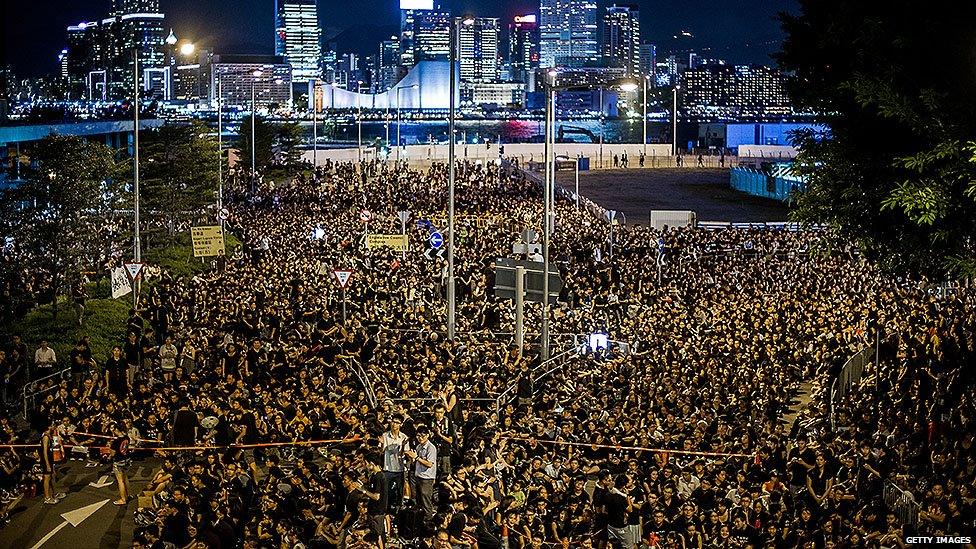
In 2014, Joshua and his fellow students blocked central Hong Kong by refusing to go to lessons and instead, gathered in the streets.
The initial protests were planned by the Occupy Central movement, but their members joined protests early.
"Rather than encouraging the students to join, we are encouraged by the students to join," said Benny Tai, one of the three main organisers of the Occupy movement.
"We are touched and moved by the work of the students."
Wong was identified as a threat to the security of the ruling Communist Party.
He was one of 78 people arrested after leading a charge at the government headquarters and he was held, without charge, for more than 40 hours.
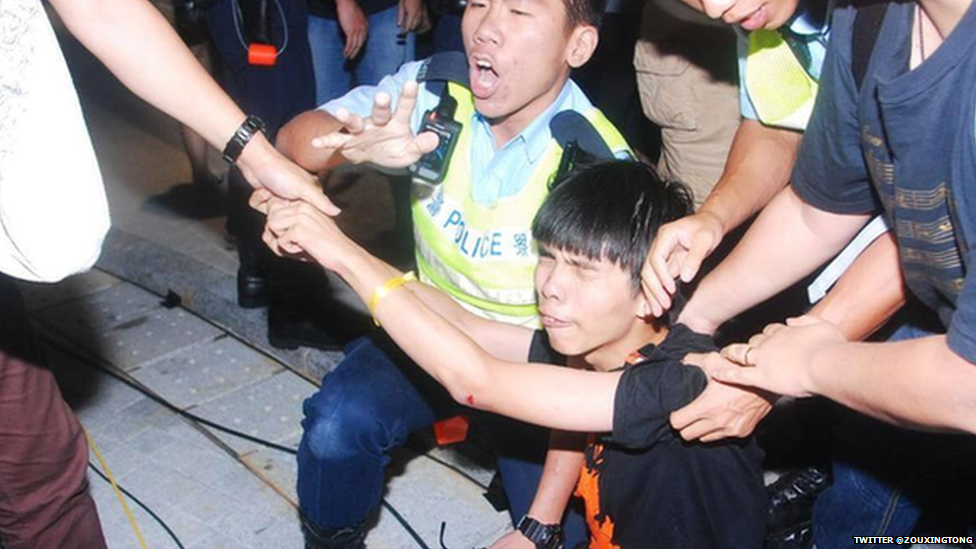
Joshua Wong was arrested for trying to storm a government building
Why does he worry the Chinese government?
The government said releasing him would compromise further investigations, but a court disagreed.
It said his detention was legal, but holding him for longer was illegal.
Despite letting him go, police have said they still reserve the right to prosecute, or re-arrest him.
He mobilised protests with the use of the FireChat app, which allows users to communicate without internet access.
Find us on Instagram at BBCNewsbeat, external and follow us on Snapchat, search for bbc_newsbeat